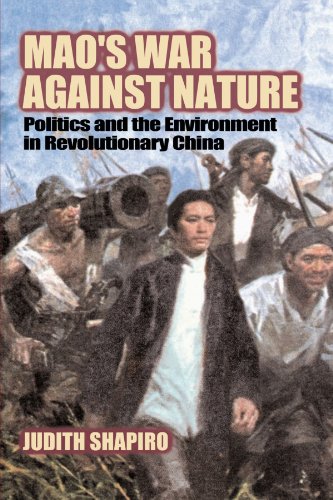- Features
- Description
- Similar Items
Binding:
PaperbackBrand:
Brand: Cambridge University PressEAN:
9780521786805Label:
Cambridge University PressManufacturer:
Cambridge University PressModel:
Size:
Warranty:
Historians have well chronicled Mao Zedong's crimes against the people of China over his four decades of rule, but his crimes against the Chinese land have been less studied. Judith Shapiro, a historian at American University, tells that dark story with admirable thoroughness.
A central tenet of Maoist ideology was the rejection of both ancient Chinese tradition and modern Western science, both of which offered an ample store of evidence to suggest that rivers flow best when unimpeded, that biological diversity is a good and necessary thing. Instead, Mao Zedong insisted, the laws of historical materialism mandated that everything in creation be put into the service of the revolution: Forests had to be felled to make steel for China's industrial development, mountains had to be leveled to make room for agricultural fields, rivers had to be reversed in their courses to provide power and irrigation. Marshaling the people of China in campaigns to clear land and destroy grain-hungry birds, among other things, Mao remade the landscape in just a few years, ordering imperial-scale projects such as the Three Gorges Dam. His policies led to disaster, to deforestation, air and water pollution, and ultimately famine--but some of those policies are still in force.
Shapiro observes that Mao Zedong cannot be held entirely accountable for the destruction of China's land, water, and air; he had, after all, many willing deputies. Still, the political repression he put in place made resistance almost impossible--and even today, Shapiro writes in her impressive study of Mao's war on the environment, his actions have proved difficult to undo. "Until China confronts its uneasy Maoist legacy," the author concludes, "it may struggle fruitlessly to achieve a sustainable relationship with the natural world." --Gregory McNamee






